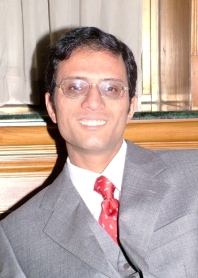Roomy Naqvy wrote:
Does the topic sound a bit weird? Well, it is partly tongue-in-cheek like everything else in these times.
Homi Bhabha, the noted postcolonial critic, talks of translation as trans-nation, as an activity which leads to the dissemination of a nation. The idea of quoting Bhabha is not to be derivative at all here.
Translation is essentially a process of cultural communication. Literary artists tend to use this is a slightly
creative fashion. For a novelist, this process of cultural translation may hold immense possibilities. Moreover, it is not true that translation as a means to foreground culture is the reserve of the Third World writers. James Joyce would spring to mind as an interesting example, much before the whole baggage of colonial and postcolonial writing came up in the world. Joyce (1882-1941) was successful in
translating his Irish identity into the English language. Translation is a potent tool in the hands of a novelist. It is a means to assert a cultural identity.
One interesting writer is the Canadian Rohinton Mistry, well-known for his acclaimed novels,
Such a Long Journey and
A Fine Balance. Mistry, born a Zoroastrian in India, has sought to translate his Parsi identity in the context of the Indian nation. There is a distinct Parsi identity even in his first book, the collection of short stories, published as
Tales From Firojsha Baag. [It was published in US as
Swimming Lessons.] The focus is Bombay, the city around which another celebrity, Salman Rushdie revolves. Mistry\'s first novel,
Such a Long Journey, also an acclaimed film, very
effectively translates the minority status of his community in the country.
For those, who would like to know, Zoroastrians are possibly one of the most minutest religious communities in the world. Possibly, no more than 80-90,000 Zoroastrians inhabit the face of the earth.
They came to India some 1300 years ago when Islam was at its peak, forcing them to leave Persia and reach the shores of Gujarat in India. They have been India\'s most westernized community and have played a role in nation building. Zoroastrians, popularly known as Parsis, have been usually adept at
business, and are known as a peaceful community. They are also gifted though they may not match the prevalence of gifted Jews across disciplines in the twentieth century. Parsis are also portrayed in Hindi cinema as eccentric.
Mistry brings this cultural baggage and effectively translates it in his works. His characters are both insiders and outsiders. This makes them more lively and poignant.
The process of translation throws up immense possibilities for the literary artist. There have been other writers as well who have used this process of cultural communication in their works. The novelist Salman Rushdie and the Kashmiri-American poet Agha Shahid Ali are notable instances. Rushdie gave a
catch-phrase. He wanted to \'chutnify\' English. [\'Chutnify\': To make into a chutney, a kind of pickle.] Agha Shahid Ali apparently went a step further. He desired to \'biryanize\' English. [\'Biryanize\': To make into a Biryani, a rich rice and meat preparation made by Indian Muslims.] The whole idea is to translate cultures and retranslate them so that everything leads to a kind of pluralistic society. The idea is just to initiate a lively discusson on the idea of translation as a literary practice. I hope people who visit the site would like to enlighten all of us by their comments. It would be nice if people came up with similar insights about literary artists from their regions.
Best wishes
Roomy F Naqvy
mere translator of gujarati
and sometimes of hindi.
P.S. To know about Zoroastrians or Parsis,
http://www.avesta.org/ or
http://www.zoroastrian.org/ To know about Rohinton Mistry,
http://landow.stg.brown.edu/post/canada/literature/mistry/mistryov.html http://collection.nlc-bnc.ca/100/201/301/lecture/emistry.htm 





